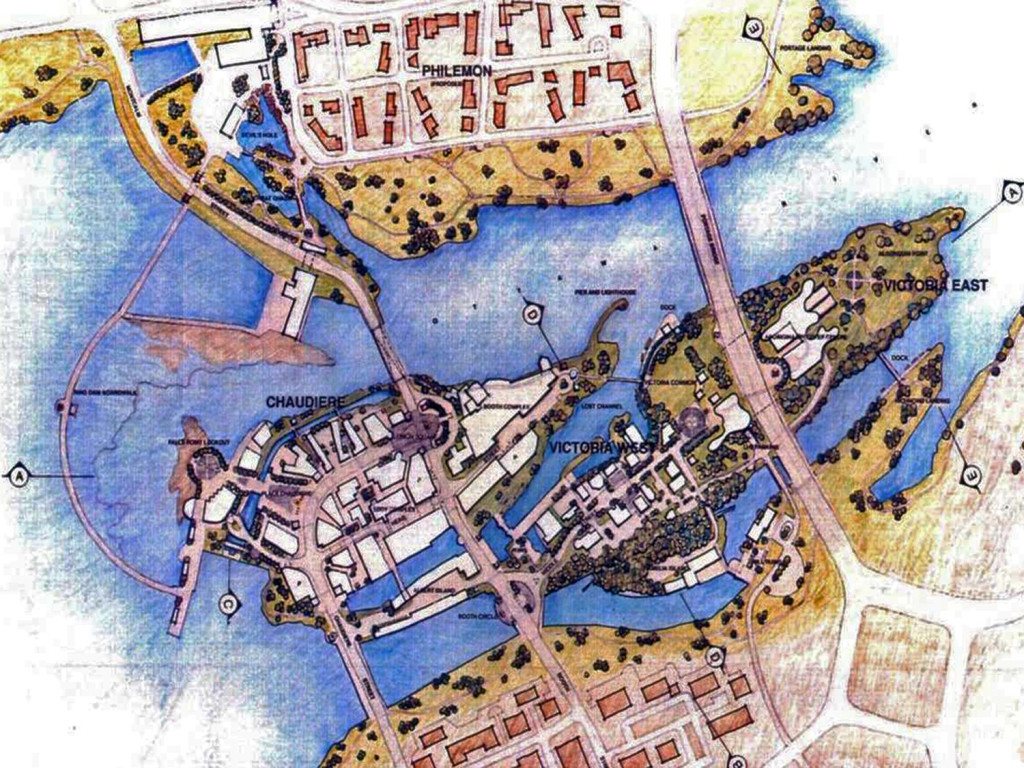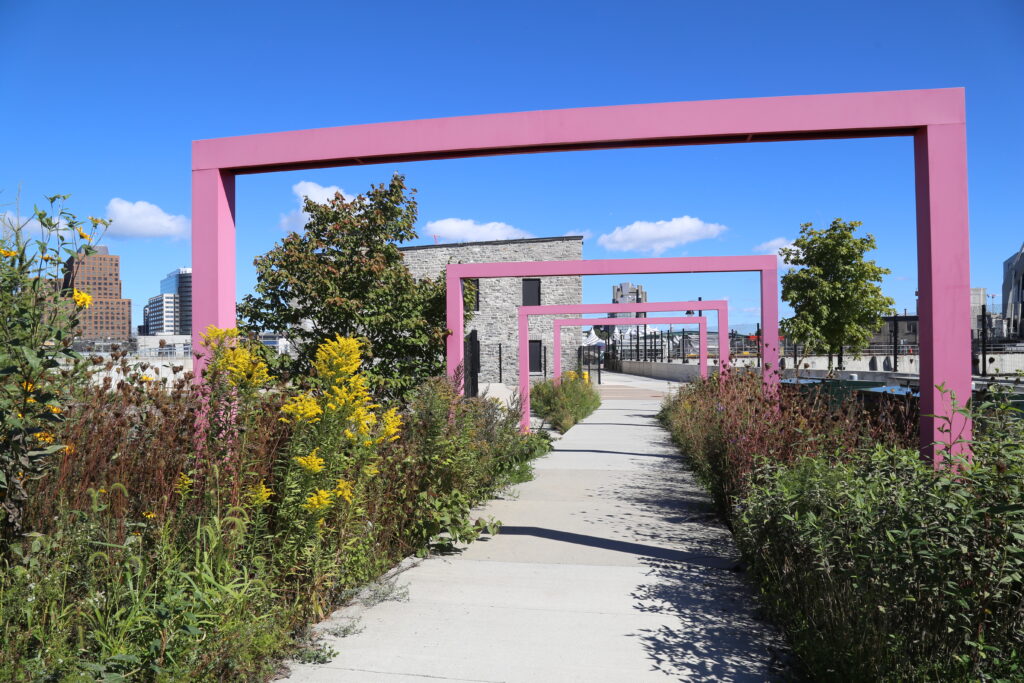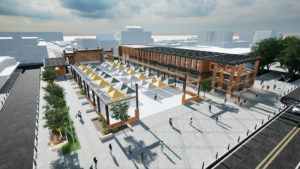Victoria-Chaudière Islands Heritage District Master Plan
In the shadow of Parliament Hill and the “Boiling Cauldron Falls” of the “Great River” (Ottawa), at the crossroads of three cultures and three periods of evolution, lies a unique and awe-inspiring site, an archipelago of islands with a rich and fertile past and an equally precipitous future. TRACE architectures was retained by the National Capital Commission (NCC) to envision and plan the 30 to 50 year Master Plan for development of this 44-acre site. This was a comprehensive plan, which included inventory and analysis, programming, development planning, heritage resources recommendations, detailed concept demonstration plans, and character area descriptions.

The Islands: Recognition, Rehabilitation, and Intervention
The Islands area of Canada’s Capital includes Victoria, Chaudière, Albert and Amelia Islands, the Chaudière Falls and Ring Dam, and their immediately adjacent shoreline lands on both the Québec and Ontario sides of the Ottawa River. This is a significant yet unrealized post-industrial district within the Core of the Capital. This project included: Architectural and Site Design Guidelines for Victoria Island, Heritage Development Concepts for various heritage sensitive areas of the district, detailed proposal for a flagship millennium project for Ottawa 2000, and a comprehensive research document.

Hull - EB Eddy Heritage Conservation District Plans
The former City of Hull (now Gatineau) and the Québec Ministry of Culture and Communications (MCCQ) retained TRACE architectures to undertake a comprehensive Heritage Conservation District (HCD) Study for the “E.B.Eddy” site at the Hull waterfront. The site comprises 16 historic industrial structures located on a prime, arresting Ottawa River waterfront location at the “Devil’s Hole” and the Chaudière Falls Ring Dam, in the heart of the central business district. Phase Two of the study comprised specific architectural conservation guidelines for the key street front, 6-building complex at the site, including the major 19th century limestone paper mills of the E.B.Eddy Company, whose founder, Ezra Butler Eddy, is a person of national historic significance.

Heritage Services Zibi Redevelopment
TRACE architectures has been working with Dream & Theia Partners to develop a preliminary plan for the E.B. Eddy buildings as a part of the Zibi Redevelopment at Chaudière Falls. The design and collaboration with Figurr Architects Collective is ongoing.

Writing
The Victoria/Chaudière Islands in Canada's Capital
ICOMOS Canada Momentum Magazine | 1998
Industrial Heritage
The national and international value of our industrial heritage is poorly understood in Canada. Some recognition of value usually occurs after industrial heritage resources have been seriously threatened or demolished. The risk is that by the time the general public understands and embraces this value, there will be precious little industrial heritage left. The economic, but also political, involvement of all levels of government in cultural preservation has changed radically (primarily diminished) in the recent past, and may continue to do so in the near future.
The expansion of public comprehension and associated resulting action, by way of community initiatives, will therefore be required in the coming years to conserve the remaining industrial heritage landscape…
Conservation & Development of Canada's Industrial Heritage
ICOMOS Canada Momentum Magazine | 1999
Heritage & Development in Evolution
In the coming decade, Canada is faced with decisions on action regarding its vast industrial heritage property. Many communities across the nation are blessed with now derelict industrial complexes from the 19th and early 20th centuries. In this “post-industrial” age of the new century, industry has taken different forms, resulting in partial or complete abandonment of these legacies of Canadian heritage, which include structures and infrastructure, artifacts, and the fabric of industrial processes. Many of these complexes form significant cultural landscapes that hold important stories of community life and Canadian industrial leadership…




